From Confederation to Nation
In the era of the Early Republic, Americans determined the meaning of their Revolution and laid the foundation for the United States later emergence as a world power. This book provides students with an explanation of the major events and developments of one of the most important periods in American History. Focusing on the years between the Revolution and the Civil War, From Confederation to Nation presents a narrative of the eras political history along with discussions of the significant social and cultural changes that occurred across the Unions first six decades. Taking a broad approach which examines economic changes, religious influences, political reform, cultural challenges, and racial and gender inequalities in the Early Republic, Atkins text is useful for a vast array of critical perspectives. From Confederation to Nation presents an accessible introduction to the Early American Republic that offers readers a solid foundation for more advanced study.
Jonathan Moore Atkins is Professor of History at Berry College, in Mt. Berry, Georgia.
From Confederation to Nation
The Early American Republic, 17891848
Jonathan M. Atkins
First published 2016
by Routledge
711 Third Avenue, New York, NY 10017
And by Routledge
2 Park Square, Milton Park, Abingdon, Oxon OX14 4RN
Routledge is an imprint of the Taylor & Francis Group, an informa business
2016 Taylor & Francis
The right of Jonathan M. Atkins to be identified as author of this work has been asserted by him in accordance with sections 77 and 78 of the Copyright, Designs and Patents Act 1988.
All rights reserved. No part of this book may be reprinted or reproduced or utilised in any form or by any electronic, mechanical, or other means, now known or hereafter invented, including photocopying and recording, or in any information storage or retrieval system, without permission in writing from the publishers.
Trademark notice: Product or corporate names may be trademarks or registered trademarks, and are used only for identification and explanation without intent to infringe.
Library of Congress Cataloging-in-Publication Data
Atkins, Jonathan M., 1960 author.
From confederation to nation : the early American republic, 17891848 / by Jonathan Atkins.
pages cm
Includes bibliographical references and index.
ISBN 978-1-138-91621-0 (hardback) ISBN 978-1-138-91622-7 (pbk.) ISBN 978-1-315-68978-4 (ebook)1.United StatesHistory17831815. 2.United StatesHistory18151861.I.Title.
E337.5.A85 2016
973.4dc23
2015031294
ISBN: 978-1-138-91621-0 (hbk)
ISBN 978-1-138-91622-7 (pbk)
ISBN: 978-1-315-68978-4 (ebk)
Typeset in Bembo
by Apex CoVantage, LLC

http://www.routledge.com/cw/atkins
Contents
The period between the Revolution and the Civil War stands as one of the most important in the nations history. Though often overshadowed by the great events that bookend the era, the Early Republics importance for American development becomes even clearer the more the passage of time removes us from it. In these years, Americans determined the meaning of their revolution and established the political, social, and cultural institutions that would shape the world of their descendants. The fledgling United States likewise demonstrated that it could defend itself from foreign dominance while laying the foundation for the nations emergence as a world power. The Constitution proved that it had created a workable government, even as the electorate expanded and adopted democratic practices that would make the United States a model of free government. At the same time, Americans defined the boundaries that would constrain the public roles of women, African Americans, and Native Americans for the next century, constraints whose legacy are still present today.
Fascination with the work of the Founding Fathers has kept alive popular interest in the Early Republic. A flood of academic research meanwhile has significantly deepened historians appreciation of the era. Nevertheless, the absence of a core text has long frustrated instructors of advanced courses on the period. This book seeks to fill that void by providing students and general readers with a relatively short introduction to the Early Republic, broadly defined as the years between the Constitutions ratification in 1789 and the conclusion of the Mexican-American War in 1848. The book does not engage the arguments that usually preoccupy scholars, nor does it necessarily reflect the current state of the profession. Instead, the goal is to present a cohesive narrative for the era, based on the work that recent and past scholars have produced. Through this approach, the work intends to take readers beyond the simplistic, heroic interpretations sometimes presented in popular histories and instead expose them to the reality, complexity, and significance of the era.
Five principal themes guide this account. The first, federalism, highlights one of the most underappreciated aspects of the preCivil War United States. The Constitution forged a more perfect union out of thirteen former colonies that prior to the Revolution had relatively little to do with each other. Revolution sparked a sense of nationalism, but practical politics decreed that the state governments retain responsibility over most domestic issues, including the well-being of a states people, the role of the courts, and the regulation of its economy. By the 1840s, the states common Revolutionary heritage, their economic and social development, and the central governments increasing effectiveness strengthened American nationalism. Still, nationalism rested upon a federal political structure that recognized state rights, and Americans continued to see the state and central governments as equals. One of this books primary goals is to show the development of the federal system that provides the foundation for modern American law and politics. Throughout, it usually refers to the United States as the Unionthe term most often used in the erato remind readers of how Americans understood their nation as a unique federal compact.
Republicanism, a second theme, represented an equally important concern for early Americans. After cutting ties with Great Britain, the Revolutionary generation created republican governments for the states and, with the Constitution, the federal Union. Today, Americans assume that government is based on the consent of the governed, and that its purpose is to protect individual rights. It remains difficult for modern generations to appreciate how radical these republican ideals once seemed to a world dominated by monarchy and aristocracy. Before independence, colonial Americans agreed with their European contemporaries that a society based on individual freedom would degenerate into anarchy. Without the stabilizing presence of a king or a titled nobility, republics historically fell prey to military dictatorships more tyrannical than hereditary monarchs. From these presumptions, nineteenth-century Americans continued to wonder whether their republican experiment could succeed, especially as they watched the French Revolution succumb to Napoleon Bonapartes empire and witnessed Europe subsequently fall prey to reactionary conservatism. The Unions accomplishments, and its increasing size and strength, eventually convinced most Americans that their republics had largely succeeded. Still, in a world dominated by tradition and privilege, the survival of governments based on popular consent remained a constant worry.

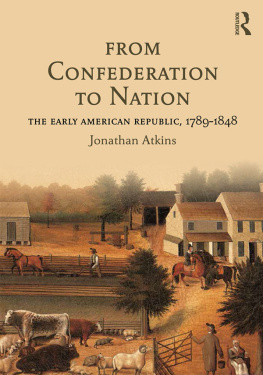

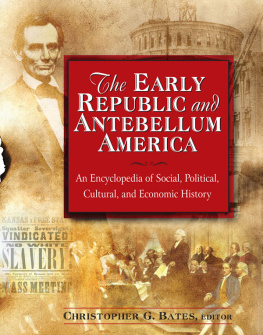
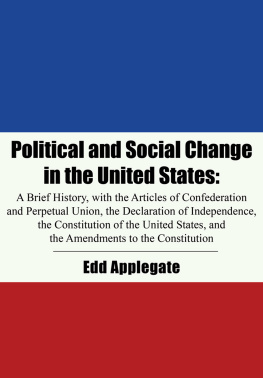
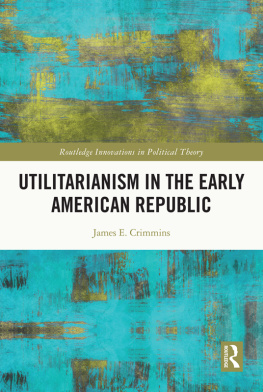

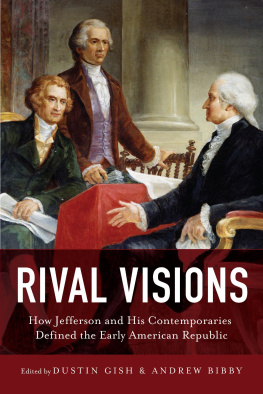
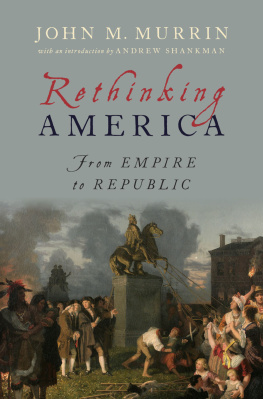
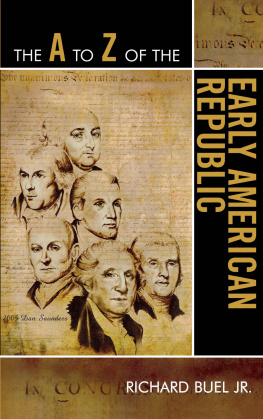
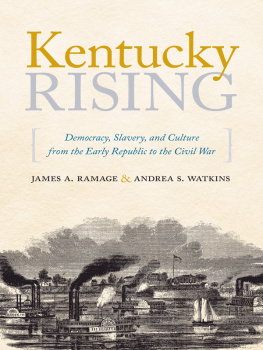

 http://www.routledge.com/cw/atkins
http://www.routledge.com/cw/atkins